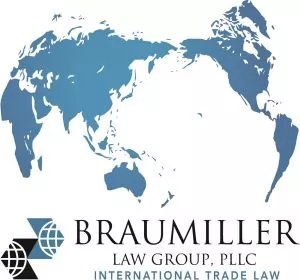- within International Law topic(s)
- in European Union
- with readers working within the Retail & Leisure industries
- within International Law topic(s)
- in European Union
- in European Union
- in European Union
- with readers working within the Retail & Leisure industries
- within Corporate/Commercial Law, Energy and Natural Resources and Technology topic(s)
On October 7, 2025, after a nearly 9-hour debate, with 338 votes in favor, 129 against and zero abstention, Mexico Congress approved Sheinbaum´s draft bill to amend the MX Customs law. The draft bill includes amending 65 articles, adding 44 new articles and abolishing 9. Some of the key points are:
- Creation of a Customs Council composed by the Ministry of Finance and Public Credit (SHCP), Tax Administrative Service (SAT) and the recently created National Customs Agency (ANAM). This council will be responsible for granting, suspending, canceling, or revoking Customs Broker's licenses.
- The customs broker's license will have a 20-year validity, which can be extended to 20 additional years provided they show compliance (Sheinbaum's proposal was 10 years). Brokers will be required to complete training every 3 years (Sheinbaum's proposal was 2 years). Also, brokers must confirm their clients are in customs compliance, otherwise, they share full and joint responsibility.
- Amendments for courier and deliver companies, fiscal deposits, strategic bonded warehouses, authorized economic operator, abandonment of goods, etc.
- Higher penalties for some violations ranging from 250%-300% of the value of the merchandise.
According to the political party supporting the proposed bill, this amendment is the right step in the right direction, ensuring that international trade is performed with order, legality, responsibility and combat illegal practices. It strengthens and increases customs controls to combat tax evasion, illegal practices, contraband, corruption, while simultaneously improving fiscal justice and reinforcing public finances. In addition, it establishes conditions for the government to collect from individuals and from those infringing the law for the benefit of the Mexican population.
On the other hand, opposing political parties argue that this amendment infringes constitutional rights and that high penalties will not end corruption. They contend that additional controls and requirements will instead increase costs for importers and exporters and negatively impact investment and nearshoring.
Legislative approval is not final, the draft bill still requires Senate approval, which has 30 calendar days to either approve it or return it to Congress with comments.
Braumiller Law Group PLLC will continue to monitor negotiation progress and provide updates as needed.
Join us for an insightful conference that delves into the pressing trade issues facing Mexico and the United States. This forum will bring together leading experts and business leaders to explore the complexities of trade agreements, tariffs, and regulatory challenges affecting both nations.
Check out our new Digital Magazine Get the inside scoop on the Braumiller Law Group & Braumiller Consulting Group "peeps." Expertise in International Trade Compliance.
The content of this article is intended to provide a general guide to the subject matter. Specialist advice should be sought about your specific circumstances.


